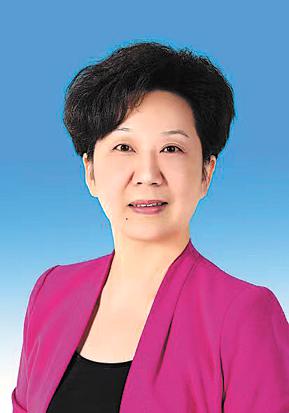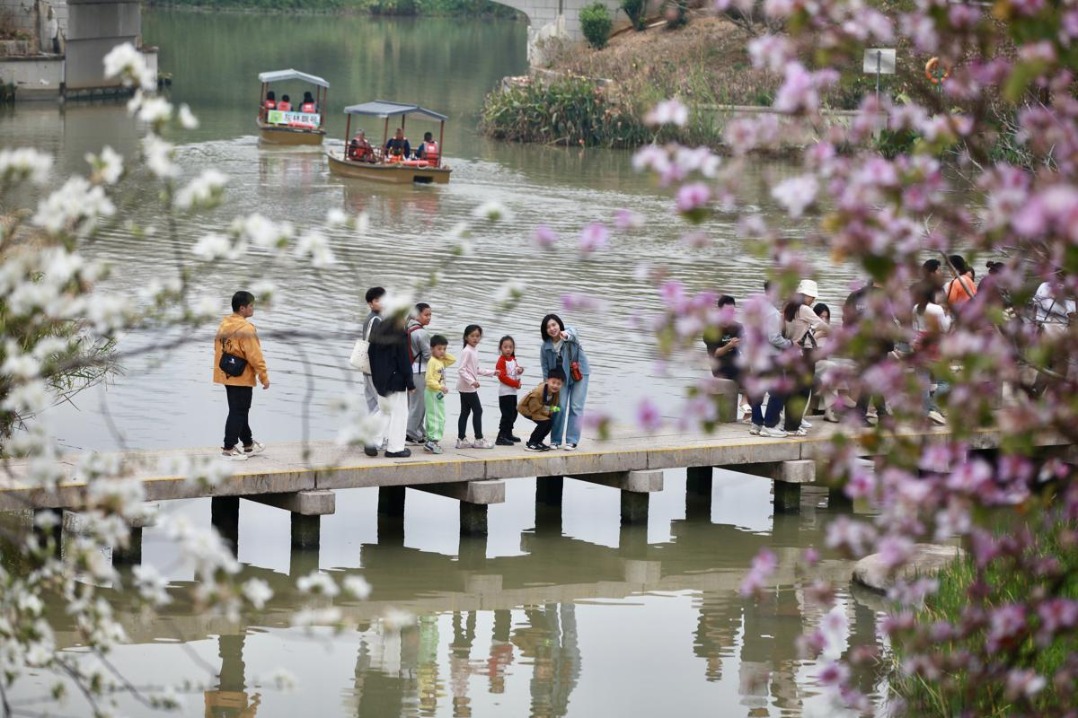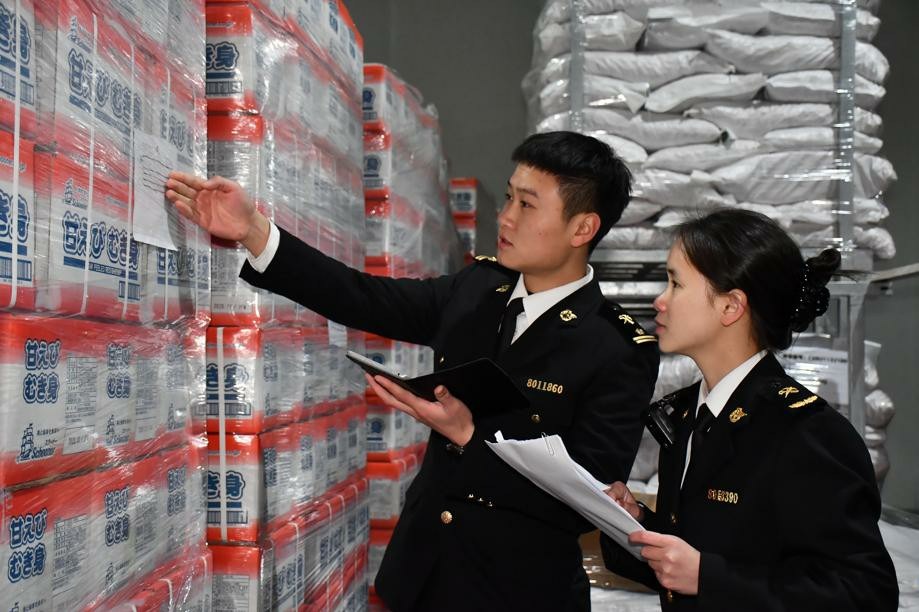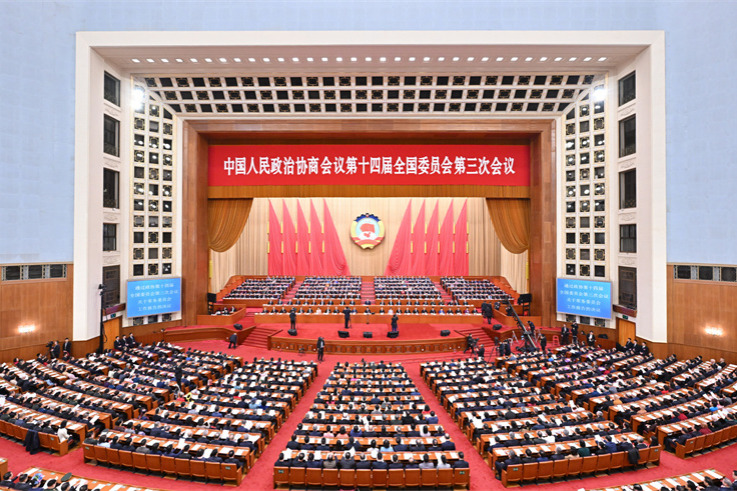Porcelain capital draws intl attention with innovation
Jingdezhen aims to become creative hub for ceramic artists worldwide


Jingdezhen, dubbed the porcelain capital of China, is opening its doors to the world with a more inclusive and innovative approach, accelerating its efforts to become a creative hub that attracts international ceramic artists and foreign tourists, said Hu Xuemei, Party secretary of Jingdezhen and a deputy to the 14th National People's Congress.
With a pottery history spanning more than 2,000 years, an official kiln history lasting over 1,000 years and a legacy of imperial kilns extending more than 600 years, Jingdezhen, a city in Jiangxi province, possesses one of the richest and most remarkable ceramic cultural heritages in the world, making it a major draw for visitors.
During the Spring Festival holiday, Jingdezhen saw a 9.64 percent increase in tourist visits from the previous year, with total tourism revenue rising 16.9 percent, according to government data.
The number of foreign tourists is also on the rise. In 2024, inbound tourist arrivals increased 45 percent year-over-year, while tourism spending grew 31 percent, according to data from travel platform Trip.com Group.
In May 2019, a proposal was made to establish Jingdezhen as a national ceramic culture heritage innovation experimental zone. The initiative aims to create a new platform for cultural exchange with the world, said Hu.
"Jingdezhen has embraced this directive, moving forward to share the story of china (ceramics) to illustrate the cultural confidence of China," she added.
Jingdezhen has placed a strong emphasis on cultural exchanges with the global community.
Last year, the 21st China Jingdezhen International Ceramic Expo attracted nearly 1,000 foreign guests from 82 countries and regions, with total participation exceeding 500,000.
Additionally, a Jingdezhen economic and trade delegation visited the United Kingdom and Portugal, hosting numerous ceramic-themed events. During a visit to the Needham Research Institute in Cambridge, England, the delegates witnessed the profound impact of ceramic culture, which transcends time and borders, Hu said.
"These exchange platforms transcend language and craftsmanship, surpassing nationalities and cultures, making Jingdezhen a spiritual homeland that captures the attention of global artisans," she said.
Zhang Jingjing, dean of the International School of Jingdezhen Ceramic University, said Chinese porcelain has historically traveled across ancient China and reached foreign regions, breaking geographical boundaries and serving as a cultural ambassador.
She believes porcelain can act as a "breaker of cultural barriers".
"We cherish our traditions, but we do not cling to them. We should innovate upon the foundation of tradition so that our cultural products can confidently enter the global market," Zhang said.
Contemporary appeal
In her view, Chinese porcelain should draw inspiration from its traditional roots, embrace contemporary innovations and help shape an international image for Chinese cultural brands.
Taoxichuan Ceramic Art Avenue, centered around the former Universe Porcelain Factory, began renovations in 2013 and officially opened to the public in 2016.
The area hosts multiple annual ceramic-themed creative markets, attracting both domestic and international tourists, as well as ceramic enthusiasts. It has hosted short-time residencies for over 800 artists from more than 50 countries, incubated over 3,000 startups, and created jobs for over 110,000 people across related industries.
"Leveraging our rich cultural and tourism resources, Jingdezhen has innovatively developed a series of scenic spots that combine millennium-old kilns with modern urban life. This approach deeply integrates cultural heritage with urban development, continuously unlocking the cultural, economic and social values associated with that heritage," Hu said.
Hu also emphasized that Jingdezhen is focusing on digital empowerment and innovative methods for preserving cultural heritage.
In recent years, the city has accelerated the use of digital technology for cultural heritage preservation, establishing the world's first ancient ceramic gene bank. By creating a digital platform, the city has collected nearly 20 million porcelain shards from different dynasties and extracted information on more than 300,000 ancient ceramic genes.
Alongside its innovative initiatives, Jingdezhen has prioritized the protection of historical heritage.
The city has expanded its system of intangible cultural heritage by offering art design and cultural relic preservation courses at seven local universities, educating nearly 90,000 students in ceramic culture and craftsmanship.
"Next, Jingdezhen will prioritize the development of a national ceramic culture inheritance and innovation pilot zone, striving to create a world-renowned destination for ceramic culture tourism," Hu said.
zhaoruinan@chinadaily.com.cn
- Porcelain capital draws intl attention with innovation
- Shaanxi seeks collaboration of institutes, enterprises
- Engineer advocates youth astronomy education
- Guizhou mountain recognized by IUCN for conservation efforts
- 'Silver economy' shows promising potential
- Judicial efforts ensure public well-being





































